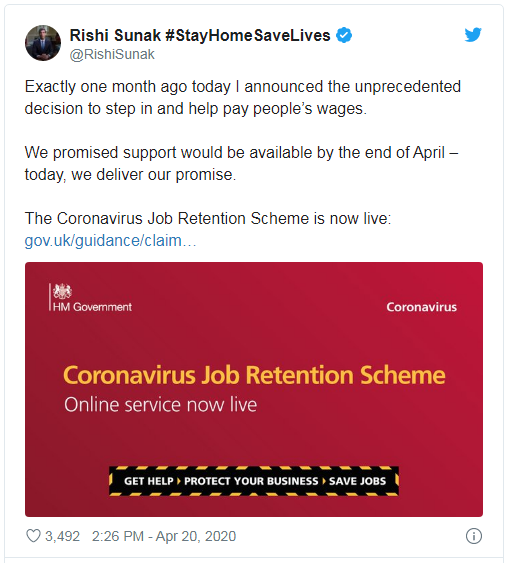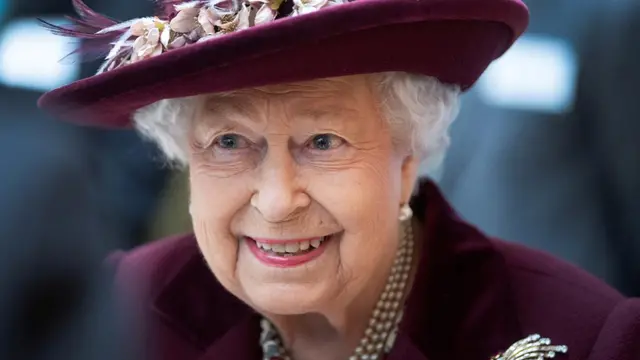For the first time in 68 years, Britain's Queen Elizabeth II will not be marking her birthday with the traditional royal gun salute, as it would be inappropriate given the circumstances surrounding the coronavirus pandemic.
Ceremonial gun salutes, in which blank rounds are fired from various locations across London, are typically used by the royal family to mark special occasions, such as anniversaries and birthdays.
'Better days will return'
At 93 years old, Queen Elizabeth has witnessed a world of change and upheaval, which has had a lasting impact not only on the Queen but also on the country as a whole. In her televised address on April 5, she touched upon this legacy, highlighting the themes of sacrifice and endurance.
"The queen is utilizing her role as the spiritual figurehead and representative of the nation to rally the spirit and morale of its population in the face of a struggle, which may not be unprecedented to her, but certainly to the three generations who have come into being under her rule. Such addresses are rare and are not taken lightly," Tom Fowdy, British political and international relations analyst, analyzed the speech for CGTN.
A week later, the Queen sent out a defiant message in her Easter address, saying that the COVID-19 pandemic "will not overcome us."
"We know that coronavirus will not overcome us. As dark as death can be – particularly for those suffering with grief – light and life are greater. May the living flame of the Easter hope be a steady guide as we face the future."
Too slow?
Britain is in its fourth week of a national lockdown, with businesses forced to close and citizens ordered to stay at home, as the country is at or near the peak of an outbreak in which more than 14,000 people have already died – the fifth highest national death toll of a pandemic linked to almost 160,000 deaths worldwide.
The government has been facing criticism over its response to the disease.
"Where were the system errors that led us to have probably the highest death rates in Europe?" Anthony Costello, professor of International Child Health and director of the UCL Institute for Global Health, asked at the Health and Social Care Committee.
"We have to face the reality of that: We were too slow with a number of things," Costello told the committee. "We could see 40,000 deaths by the time it's over."
Meanwhile, the Guardian voiced disappointment over the supply of Personal Protective Equipment (PPE) for health workers.
It believed that the shortages meant guidelines were being relaxed and that doctors might need to treat patients without wearing full-length protective suits.
When is the right time?
Following criticism that the government was too slow to react, Culture Minister Oliver Dowden said on Monday that Britain will review its approach to the coronavirus pandemic to learn what it could have done better.
"When we're dealing with an unprecedented crisis like this we're not going to have perfect 20:20 hindsight vision on this," he told the BBC. "Of course we will need to look back and see the things we could have done differently."
"But right now people would not be expecting us to be looking back over the past few months; they would be expecting us to be dealing with this crisis on a day-to-day basis. We have said that we will of course review all the lessons that we need to learn from this and indeed learn the lessons globally."
Furlough scheme
Also, for workers at companies hit by the coronavirus outbreak, Britain has extended the furlough scheme by a month until the end of June, but there is concern the website could crash underweight of applications.
Finance Minister Rishi Sunak announced the extension last week, claiming "it is vital for people's livelihoods that the UK economy gets up and running again when it is safe to do so," and he will continue to review the scheme, so it is supporting the recovery.

Screenshot of the post on Twitter.
The scheme, which allows firms to furlough employees with the government paying cash grants of 80 percent of their wages up to a maximum of 2,500 pounds (3,123 U.S. dollars), was originally open for three months and backdated from March 1 to the end of May.
According to the Guardian, HM Revenue Customs (HMRC) has deployed 9,500 staff to deal with queries, including 5,000 on web chat, but there are fears that the website could crash and that telephone lines could also be overwhelmed. This would mean that workers do not get paid, or that businesses that pay their staff go bust. Within an hour of opening, HMRC said the system was coping well so far.
(Cover: Britain's Queen Elizabeth II talking with MI5 officers during a visit to the MI5headquarters in Thames House, London, UK, February 25, 2020. /Reuters)(With input from agencies)
(CGTN)
 简体中文
简体中文



